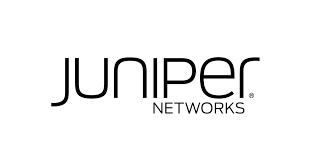Earlier this month HPE announced its intent to acquire Juniper Networks for $13.6 billion. We are a bit late getting to this news in part because the deal came on top of the CES cycle, but also due to the fact that we really do not know what to make of the deal. And judging from the reaction to HPE’s stock, we are not alone in that incomprehension.
HPE, more formally Hewlett Packard Enterprise, is the remnant of storied Silicon Valley giant HP which sells to business customers, as opposed to its sibling HP which sells to consumers. HPE assembles compute systems from PCs to data center racks. AS HP shrunk over the years, we have come to think of HPE as a very high functioning system integrator. They do R&D and do sell their own products, but much of their business comes from designing systems for customers and building to order. Juniper is a provider of high-end networking gear – routers and switches, with a heavy reliance on telecommunications and hyperscaler customers. Juniper’s business is much more R&D intensive and it shows. HPE’s gross margins are in the 30%’s, Juniper’s in the 50%’s.
Once upon a time, maybe a decade ago, this combination would have made much more sense, but the world has shifted a lot since then. HPE’s value proposition to customers is very different. They no longer look to HPE to solve complex technical problems, they just need them to build pre-defined systems, economically. We do not mean to completely write off HPE’s R&D work, but the realities of the business point to a fairly stark distinction between the two companies’ approaches. Put a different way, Juniper writes a lot of software which it monetizes through its hardware, HPE does not write much software and monetizes largely through hardware alone.
That being said, Juniper’s has been fated to get acquired for a long time. Their position in the market has slowly eroded. They are stuck between changing customer needs and buying patterns on the one side, and their long-time rival Cisco on the other. Juniper’s stock has barely moved in twenty years as they chased a treadmill of intensive R&D requirements for a market that keeps moving away from them.
All of which gets to what we think is the central point of this deal – the hyperscalers. The ten or so companies who build the biggest data centers consume 50% of enterprise electronics, and for many of both companies’ products the rate is even higher. These big customers are increasingly designing their own network topologies eliminating the need for Juniper’s products, or at least reducing their addressable market. Put simply, Juniper was on a path towards HPE’s business model, better to jump now then get pushed in a few years.




Leave a Reply